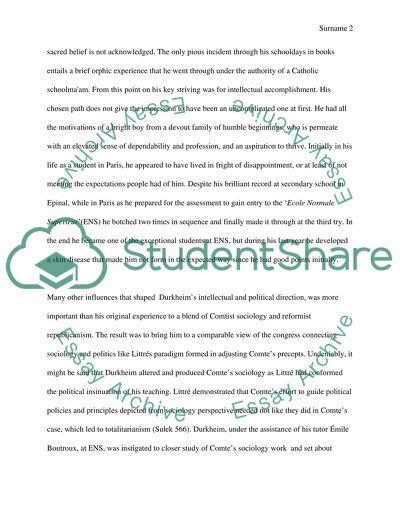Cite this document
(“Life, Work, and Relevance of Emile Durkheim Research Paper”, n.d.)
Retrieved from https://studentshare.org/sociology/1495743-life-work-and-relevance-of-emile-durkheim
Retrieved from https://studentshare.org/sociology/1495743-life-work-and-relevance-of-emile-durkheim
(Life, Work, and Relevance of Emile Durkheim Research Paper)
https://studentshare.org/sociology/1495743-life-work-and-relevance-of-emile-durkheim.
https://studentshare.org/sociology/1495743-life-work-and-relevance-of-emile-durkheim.
“Life, Work, and Relevance of Emile Durkheim Research Paper”, n.d. https://studentshare.org/sociology/1495743-life-work-and-relevance-of-emile-durkheim.


